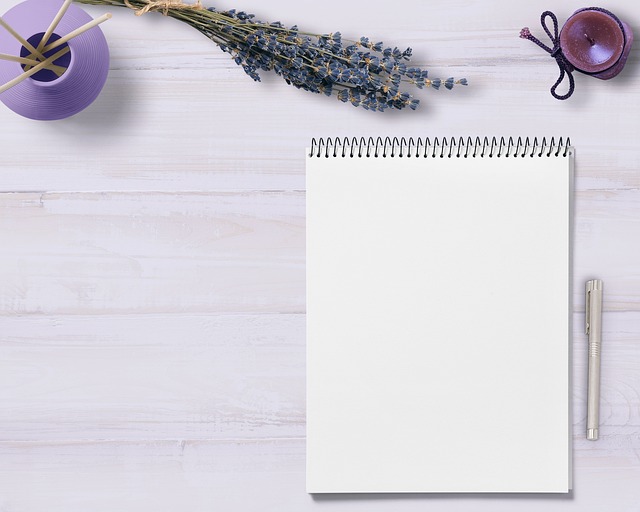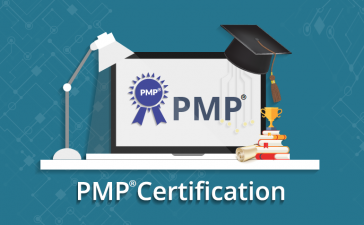Several individuals who become new writers often face several challenges. One of these challenges is staring at the blank page with no right words to write. This is referred to as “writer’s block.”On a daily basis, several writers face this issue and are stuck for long periods of time with no motivation or ideas. So, how to beat writer’s block?
Well, the first thing that might surprise you is that all writers struggle with writer’s block. No matter if they are a journalist or a novelist, one or the other, they do get stuck. Overcoming writer’s block is a delicate process, and the results are subjective. Furthermore, the process entirely depends on an individual’s personality. But in the end, it comes down to overcoming self-doubt and believing that your efforts will be rewarded. However, what differentiates the expert from the novice is their years of experience and their strategies to beat writer’s block. In this block, we will discuss 36 surefire strategies to beat writer’s block. But first, let us discuss the reasons why writers face this phenomenon of writer’s block.
Reasons for writer’s block

Writer’s block is a common phenomenon that can affect anyone who writes. It can be caused by a variety of factors, including stress, fatigue, and lack of inspiration.
There is no one answer to the question of what causes writer’s block. For some people, it may be due to a lack of motivation or inspiration. Others may struggle with perfectionism, fear of failure, or a feeling of “not good enough.” And for many, it may be a combination of these factors.
Writer’s block can be frustrating, but it’s important to remember that it is not a permanent condition. With a little time and effort, you can overcome writer’s block and get back to writing.
If you’re experiencing writer’s block, it’s important to take a step back and assess the situation. Once you identify the cause of your writer’s block, you can take steps to overcome it. With a little effort, you’ll be back to writing in no time. Let us discuss a few methods for how to beat writer’s block.
How to beat writer’s block: 36 tested strategies
Writer’s block is a common problem that affects writers of all levels of experience. It can be frustrating and discouraging, but the good news is that it is possible to overcome writer’s block.
There are a few things you can do to get over writer’s block and start writing again. First, try to identify the cause of your writer’s block. Are you feeling overwhelmed by the task at hand? Are you second-guessing your abilities? Once you’ve identified the cause, you can start to work on addressing it. After figuring out these answers, try the listed below strategies to beat writer’s block. —
1. Omitting the introduction
Felt confused in your intro part? Start by drafting your conclusion. According to many authors, the hardest aspect of writing is coming up with an introduction. If you start with your conclusion, you’ll know exactly what result you’re aiming for. When you are familiar with the subject matter of the tale or book, it is also a lot simpler to write the introduction last. This is one of the strategies to beat writer’s block.
2. Start by writing what you know.

When faced with a difficult or confusing subject, jot down all the information you know about it. Use bullet points, index cards, or a mental map. It’s your responsibility to explore your thoughts on the subject at hand. Putting the information in writing can help you decide what to research and what topics to cover. This is how to beat writer’s block
3. Change the facts!
One of the strategies to beat writer’s block is you can alter a fact’s truth without also altering your perception. This approach is a sure way to get the creative juices flowing. You might even use it to generate concepts and ideas that would spark your interest. This can help you kill the boredom and help you start with the writing process again.
4. Using a writing prompt
Writing prompts make you come up with new words and focus on the core of your writing. It gives the textual issue background and focuses. Writing prompts are intended to spark individuals’ interest in a subject and inspire them to write critically and creatively about it. You can even select a writing exercise that has nothing to do with your subject, just to rekindle your creativity.
5. Experiment with free writing.

If you’re feeling stuck or stuck in a rut, why not try free writing? Free writing is a form of writing where you just write whatever comes to mind, without stopping to edit or censor yourself. It can be a great way to get all your thoughts down on paper and to help you see things from a different perspective. This is one of the good strategies on how to beat writer’s block.
6. How to beat writer’s block by making a schedule
If you want to be a successful writer, it’s important to create a writing schedule and stick to it. This will help you stay on track and progress with your writing goals.
Creating a writing schedule is easy. First, decide how many days per week you want to write. Then, block out time in your calendar for writing. Make sure to schedule your writing time in a place where you won’t be distracted. And finally, stick to your schedule!
If you follow these steps, you’ll be on your way to a successful writing career in no time.
7. Regular rest periods

One of the strategies to beat writer’s block is to take a break. It is one of the best strategies to beat writer’s block.
Creativity is not encouraged by fatigue. Additionally, frustration will reduce your productivity. In creative endeavours, procrastination can occasionally be beneficial.
Make a commitment to pick up your book or stories again at a certain time after you’ve eaten, rested, or otherwise refuelled. This is how to beat writer’s block.
Restart with a bright outlook. Make up your mind in advance that this writing session will be amazing and you’ll unleash your creativity.
8. Regular exercise

Although writing is a sitting-down job, it requires a lot of energy, and writers frequently report feeling fatigued after lengthy sessions.
Science has shown that exercise fosters creative thinking. It benefits you as well. Your alertness and vitality may be enhanced by exercise since it boosts blood flow to the brain. Your creative juices will start flowing more quickly after a solid workout.
9. Meditation for mental openness

Writing is a task that may be extremely difficult and anxiety-provoking. But did you realise that writing might truly benefit from meditation? Focus, clarity, and creativity have all been demonstrated to increase with meditation. Additionally, it can aid in lowering tension and stress. You can write better thanks to all of these advantages. This is how to beat writer’s block.
10. How to beat writer’s block by having a discussion with other writers
Talking with other authors is one of the most effective strategies to beat writer’s block. They can offer you tips and strategies that will enable you to stand up again. You can talk about the strategies they use to get beyond writer’s block. Since the problems are frequently the same, the remedies they provide you might be really beneficial.
11. How to beat writer’s block by making use of an oblique writing strategy
The oblique Strategy is a card-based approach for encouraging creativity jointly developed by musician/artist Brian Eno and multimedia artist Peter Schmidt.
Oblique strategies are those that are external but easily assimilated. This means that while stale, automatic thought processes are disrupted, the flow state can be preserved. Oblique strategies are meant for personal use, yet they are used by everyone because of whom they benefit.
12. Listening to music

Most individuals believe that low to medium-level music or sounds are better for productivity. However, listen to the type of music that does not have any lyrics.
You can always give acoustic beats a try if you have trouble concentrating while listening to music. It’s recommended to listen to this particular genre of music while using headphones. You can concentrate, write, study, and work as a result of the brain waves it produces.
13. Adjust the surrounding
One of the strategies to beat writer’s block is to change the environment where you write, including the noise level, temperature, lighting, and other factors. According to studies, the ideal degree of stimulus for the brain during the creative process is moderate loudness. Moderate noise makes it more difficult to comprehend, which makes it easier to think creatively and abstractly. It will be simpler to put pen to paper if creativity and abstract processing are improved.
14. Making notes on ideas

Any writer can find writer’s block to be a frustrating condition. It might originate from a variety of places, but it can also be a sign of something more serious. Some authors discover that writing about the subject in their own voice enables them to break through the writing block and capture their ideas and thoughts on paper.
15. Making a list of thoughts
Make a list of your ideas and write something down every day. Your writing will improve as you write more. Don’t stress about being flawless or bother about editing right away; just get your ideas down on paper (or the computer screen). Don’t be too hard on yourself. It takes work to become better at writing; it won’t happen overnight. Simply persevere, and you’ll eventually see progress this is how to beat writer’s block.
16. Swipe the file as an option.
Still, stuck on how to beat writer’s block? A swipe file is a digital or physical repository for all the wonderful concepts you’ve encountered throughout the years. Professional non-fiction writers and copywriters use it frequently all over the world. You can save headlines, introductions, memorable quotes, images, and article ideas to your file and refer to them later when you’re stuck.
17. Sort through your Commonplace Book

Make notes of your observations, catchy phrases, quotes, facts, and informational nuggets for later use. I advise you to keep several volumes, number your pages, keep a table of contents, and keep an index in order to keep it organised.
18. Keep a journal
Keeping a journal is a fantastic way to increase your creativity and mental clarity. You can also process unpleasant emotions and manage your worries and tension with its assistance. If you’re unsure of where to begin, there are a few easy steps you can take to make the most of your writing practice. Just follow your gut here; there is no right or wrong response here.
19. The Pomodoro method
Using the Pomodoro approach, you can divide your writing into brief, concentrated sessions with short pauses in between. Set a timer for 25 minutes and select a writing assignment first. You’ll have a 5-minute break following the 25-minute period. Following the fourth writing session, you’ll take a lengthier break (15–20 minutes), then repeat the process four more times and this is how to beat writer’s block.
20. Digital detox

Close all of your other apps besides the one you use to write, unplug your internet cable, and turn off Wi-Fi. Therefore, refrain from using social media until you have reached your daily word goal. A digital detox is a fantastic way to avoid distractions. You’ll notice a change if you abstain from using your smartphone and the internet for one day per week.
21. Go old school.

Want to avoid damaging your computer? Grab a pen and a piece of paper and go back in time. You’ll be surprised by the battery life and screen resolution. Pen and paper writing allows you to feel more connected to the creative process than any computer tool ever will. Additionally, using analogue tools can highlight your artistic persona and inspire new ideas and this is how to beat writer’s block.
22. Take responsibility for your actions
You tend to get better and write better when you take ownership of your actions. When you make something public, you need to keep it in mind because it will motivate you.
Find a peer who will hold you to your promise and encourage you to persevere and complete the task. Next, it’s up to you to reach the deadline.
23. Make a list of your accomplishments.
Consider your accomplishments more than your job responsibilities. Use strong language at the beginning of your sentences, such as action verbs. When possible, use quantitative methods with a focus on measurable outcomes. Taking joy in your accomplishments causes it to surface. It serves as a reminder that, despite feeling stuck, you are moving forward.
24. What is your next move

What would you do after writing? Jot it down. Perhaps you should do an expert interview for your piece, read a book to enrich your study or revise your outline. You can take action and advance your writing in some small way by organising your next steps. Always keep in mind that you should be writing, not planning and this is how to beat writer’s block.
25. Give it a read.
Your favourite writing of yours should be read again. If it helps, try jotting down the tone, transitions, sentence length, sentence structure, point of view, and vocabulary that you enjoyed. It will make the process interesting and also help you beat writer’s block.
26. Document your emotions
Write about how it feels if you’re having trouble with the task at hand.
Are you currently experiencing any of the following emotions as a result of your writing? Put your emotions through a constructive process and it will assist you on how to beat writer’s block.
27. Recognize your own strengths

Everyone possesses a special set of writing skills. Others are excellent at crafting lengthy pieces, while some are terrific at creating attention-grabbing headlines. There are also a lot of additional writing abilities in between.
Finding your writing strengths is crucial if you want to be a good writer. When you are aware of your strengths, you may concentrate on developing them further and this is how to beat writer’s block.
28. Recognize your writing flaws
Everyone has their own areas of weakness, and writing involves many distinct skills. Asking yourself the following questions will help you determine your own writing weaknesses:
What are you lacking?
Can you clearly and succinctly communicate difficult ideas?
Are your grammar and punctuation skills strong?
Keep making use of your strengths and keep working to strengthen your weaknesses.
29. Changing the viewpoint
One of the strategies to beat writer’s block is to describe your subject from a different angle. What kinds of thoughts can be first-person or second-person? For a different viewpoint, read more and get into the specifics. Talking with those who have diverse perspectives will help you get beyond writer’s block.
30. Make use of annotation
Make notes and highlight important passages in the books you read. Review these annotations afterwards for content, ideas, and inspiration. Perhaps you’ve come upon a powerful metaphor or a list of phrases that will captivate any audience. Maybe you’ve thought of a clever way to connect the concepts taught in earlier chapters.
31. Write with a goal in mind.

Do you want to motivate, instruct, or entertain your audience?
The style and tone of your writing should be determined by the aim of your work. It will also assist you in deciding what details to provide.
Once you’ve identified the goal, you can look up other works you’ve read with a similar objective. Gather a few fresh concepts that will help you move forward from there.
32. Create an outline
Create an article outline to pinpoint important ideas or topics, using single words or lists. You can prepare your content in advance by outlining it. Remember, nevertheless, that a mind map should centre on one main subject or notion before expanding from it. Mind maps are used by both amateur and professional writers.
33. Set aside time for editing.
You’ll never get past the first paragraph if you allow your internal editor to control your writing while it’s still in the first draught stage. The flow of your writing session is disrupted when you stop to edit yourself. Write the words down, then go back and edit. If you write in the morning, keep a separate period for editing in the evening.
34. Only write for the intended audience.
Avoid trying to win over everyone when you write your dissertation. The person who needs your material will appear. Experts advise writing to a specific person rather than an audience. It will make you feel more confident and help you get over your fear of speaking in public. Therefore, only choose a target market that will read and value your material.
35. Consume better in order to write better.

Sometimes the difficulty with input causes authors to feel uninspired. You can’t continue to produce indefinitely without giving more fuel to the fire. You can use techniques like reading a compelling book or seeing a motivational movie, watching your favourite web series, and allowing the creative endeavours of others to renew you.
36. Make an effort

Try writing down your blog post ideas the next time you get them. Simply getting the thoughts out of your head and onto paper might help you begin the writing process, even if they are incomplete or not fully formed. You can step away from your thoughts and wait for them to return when they’re prepared. But if they do, make sure you push yourself to record them as quickly as you can.
These are some approaches to overcoming writer’s block. However, if you wish to learn more about it, why not do it the correct way? Let’s see how.
Henry Harvin’s content writing course

With over 300,000 alumni, 900+ B2B clients, 500+ award-winning trainers, and 400+ courses, Henry Harvin® is one of the Top 500 Global Edtech Companies. The content writing course is the best of them to take if you want to learn how to beat writer’s block.
Courses like content writing are in high demand in this new era of digitalization. A minimal degree now allows anyone to pursue a profession in content writing, contrary to earlier assumptions that only highly-read people made successful content writers. According to Trainings360, the Henry Harvin Certified Digital Content Writer (CDCW) credential is the best in the industry.
Benefits of the course
The course teaches you how to write 30+ different types of content and earn money online by writing. In order to write for international clients, you should also learn to develop your basic language skills. Develop your web design skills to create a simple website and a personal blog. Additionally, develop your graphic design skills to build PPTs, newsletters, logos, and more. Finally, learn advanced research techniques that enable you to write on any subject. To help students put their newfound knowledge into practice, the course offers 40 hours of two-way, live, interactive classroom sessions.
The learners get special benefits from the gold membership, which gives e-learning access, guaranteed internships, job opportunities, BootCamp, and unique access to a complimentary Soft Skills Development Module in addition to the course syllabus.
All things considered,
Writer’s block is a common phenomenon that can be experienced by anyone. It is a phenomenon where the writer struggles to come up with new ideas for their creative work. This problem can lead to writers not being able to complete their work and feeling frustrated.
There are many ways to overcome writer’s block, and we have discussed 36 of them.
If you find yourself struggling with writer’s block, try one of these methods and see if these strategies to beat writer’s block help you get back on track! If not, take the expert’s help and join a writing course’
FAQs
Answer- Both professional and amateur authors have writer’s block, which is described as a temporary inability to start or finish a writing assignment owing to fear, worry, or a lack of creativity. When there is a deadline to meet, writer’s block anxiety might be very strong. Furthermore, according to the study, there are several reasons why people choose not to write, such as severe self-criticism or fear of other people’s opinions. In order to conquer it, you must first identify your motivation. Try any of these 36 tactics, for instance.
Answer- The answer is simple. If you are not able to write when you should be writing, then I have news for you. Writers occasionally experience the issue of writer’s block, which is best described as an intense sense of being stuck in the writing process and unable to advance and produce new material.. In addition, if you are feeling the same way, then yes, you may be facing writer’s block. However, don’t worry, you can overcome it by following these simple strategies.
Answer-It is impossible to determine the actual prevalence of writer’s block because there is no universal description of what it is. However, it is regarded by writers to be a rather common ailment. After all, practically everyone experiences difficulty with their writing occasionally. Don’t worry, you’re not the only one that has to deal with this problem. It can just be a problem with your habits or some pressure you may be experiencing. The best you can do is either complete it or take a break. Depending on how frequently you can sustain it, the latter is more useful.
Answer- The good news is that there are several effective strategies to overcome writer’s block. Why not attempt a content writing course if you feel like your writing has struck a brick wall? I can promise you that as a writer, I have not only been there and done that, but I am also a qualified content writer. As a result, the course has greatly aided in my understanding of my strengths and shortcomings and given me a good understanding of how to deal with writer’s block. Therefore, if you’re searching for a quality content writing course. To discover how to overcome writer’s block and learn many other topics, enrol in this Henry Harvin content writing course.
















Recent Comments